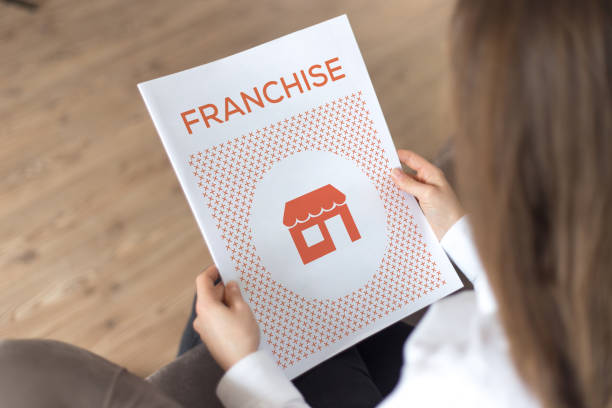Embarking on a franchise journey is a powerful way to step into the world of entrepreneurship with a tested model. Whether you're craving the independence of business ownership or drawn to the allure of a trusted brand name, franchises offer a ready-made formula for success. But like any business pursuit, it all begins with the one thing that fuels dreams: funding.
Here's a concise, practical guide to help you navigate the path to securing the capital for your franchise business in the UK.
1. Understand Your Franchise Investment Requirements
Before reaching out to any lender or preparing a financial plan, take time to fully grasp the cost structure of the franchise you're interested in. Start-up costs can vary significantly depending on the brand, industry, and location. These may include:
-
Franchise fees
-
Equipment and inventory
-
Fit-out and premises
-
Legal and training costs
-
Marketing and advertising
This step is about clarity. Request a breakdown from the franchisor, review the Franchise Disclosure Document (FDD) carefully, and seek independent financial advice if necessary. Knowing the exact amount you need will shape your funding strategy.
2. Assess Your Personal Financial Position
Before banks or investors consider giving you a loan, they will want to see how well you manage your own finances. Start by checking your credit report and ensuring it is in good shape. Gather records of your assets, liabilities, income, and expenditures. Lenders appreciate transparency and preparation.
Ask yourself:
-
How much can I invest from my own savings?
-
Am I willing to take a loan? If yes, how much risk can I realistically afford?
-
Do I have a contingency plan if revenue takes time to grow?
Remember, the more capital you can invest yourself, the more confidence others will have in your commitment and ability to manage the venture.
3. Explore Traditional Bank Loans and Franchise Lending Schemes
Franchises often enjoy greater trust from banks compared to independent start-ups because of their proven success rates. UK banks like NatWest, HSBC, and Lloyds offer tailored franchise loan packages, many of which finance up to 70% of the start-up cost.
Most banks will require:
-
A strong credit history
-
A detailed business plan
-
Financial projections
-
Background on the franchise opportunity
To strengthen your application, include industry insights, local market research, and your relevant professional experience.
Also, look into government-backed schemes like the British Business Bank's Start Up Loans programme. These low-interest loans (up to £25,000) come with mentoring support and can be a great starting point for new franchisees.
4. Consider Asset Finance and Alternative Lenders
If your franchise requires significant investment in equipment or vehicles, asset finance may be a viable option. This involves securing funding against the value of the asset, which can help preserve working capital.
In addition, non-traditional lenders and fintech platforms have transformed the funding landscape in recent years. Peer-to-peer lending, crowdfunding, and challenger banks like Starling and Tide offer faster, flexible funding solutions with less red tape.
Research thoroughly, compare interest rates and terms, and ensure the lender is regulated by the Financial Conduct Authority (FCA). If you're unsure, consulting a financial adviser can help you filter legitimate options from risky ones.
5. Look into Franchisor Support and Incentives
Some franchisors actively assist with financing or offer incentives to lower the initial investment barrier. These can range from payment plans for franchise fees to connecting you with preferred lending partners who are familiar with their business model.
If you're exploring the best food franchises in London, for instance, many well-known brands offer start-up support packages. These deals often include training, marketing kits, and step-by-step launch guidance, making them particularly attractive for first-time franchisees.
Ask your franchisor:
-
Do they offer financial assistance?
-
Can they introduce you to finance partners?
-
Are there discounts for multi-unit ownership?
Being proactive with these questions can open doors to opportunities you might otherwise overlook.

6. Prepare a Solid Franchise Business Plan
Your business plan is your ticket to funding. It should not only convince others to invest in you but also serve as your own roadmap for success. Include:
-
An executive summary
-
Market and competitor analysis
-
Marketing strategies
-
Sales forecasts
-
Operational plans
-
Financial projections
Make your case with logic, data, and vision. Explain why the chosen franchise is a smart investment, how you'll differentiate locally, and how you plan to meet your financial goals.
Don't forget to include industry insights and reference local demographic trends. If you're venturing into a competitive area like central London, understanding population density, average income, and food consumption habits can add powerful weight to your proposal. Learn more about how market demographics can influence franchise location success.
Final Thoughts
Funding a franchise is not just about finding the money. It's about building confidence in yourself, your chosen brand, and the plan that ties it all together. With preparation, honesty, and a sharp understanding of the numbers, you can position yourself as a serious contender in the franchising world.
Whether you're eyeing retail, service-based ventures, or the best food franchises in London, remember that funding is only one part of the equation. The real magic lies in what you do with it.






